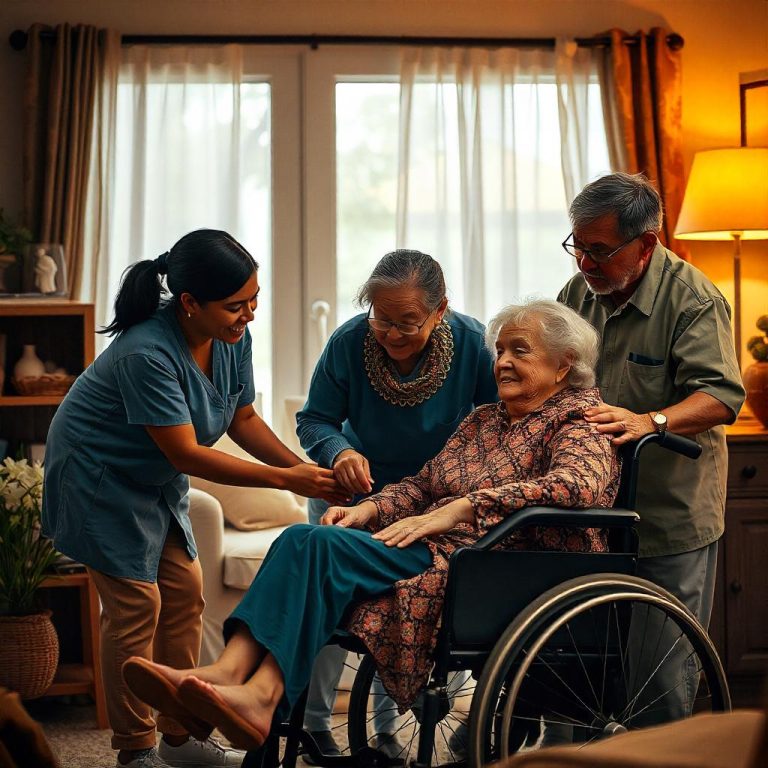Elderly caregivers play a crucial role in providing specialized care to individuals with special needs. These caregivers bring a wealth of experience, empathy, and patience to their responsibilities, ensuring that the unique requirements of individuals with physical, cognitive, or developmental challenges are met with compassion and professionalism.
Responsibilities of Elderly Caregivers for Special Needs
- Personal Care Assistance
Elderly caregivers help with daily living activities such as bathing, grooming, dressing, and maintaining personal hygiene. For individuals with mobility issues, they provide support in transferring, positioning, and using assistive devices. - Medication Management
Managing medications is critical for individuals with special needs. Elderly caregivers ensure that medications are administered correctly and on schedule, often coordinating with healthcare professionals to monitor side effects or adjust dosages. - Emotional Support
Providing emotional stability is an essential part of caregiving. Elderly caregivers often serve as companions, offering reassurance and a sense of security to individuals who may experience anxiety or emotional distress due to their conditions. - Therapeutic Activities
To enhance mental and emotional well-being, elderly caregivers engage individuals in therapeutic activities tailored to their abilities. These activities may include arts and crafts, light exercises, music therapy, or memory games. - Nutritional Assistance
Caregivers ensure that dietary needs are met by preparing balanced meals and monitoring food intake, especially for individuals with dietary restrictions or specific nutritional requirements.
Qualities of Effective Elderly Caregivers
- Empathy and Patience
Caring for individuals with special needs requires a deep understanding of their challenges. Elderly caregivers must exhibit patience and a compassionate approach to ensure their clients feel valued and respected. - Attention to Detail
Elderly caregivers often manage complex care plans that include medical routines, therapy schedules, and dietary guidelines. Attention to detail is crucial to ensure all aspects of care are handled effectively. - Adaptability
Care needs can vary widely among individuals with special needs. Elderly caregivers must be flexible and willing to adapt their methods to suit the unique requirements of each person. - Strong Communication Skills
Caregivers often interact with family members, healthcare professionals, and therapists. Clear and effective communication ensures a cohesive approach to care.
Benefits of Hiring Elderly Caregivers for Special Needs
- Experience and Maturity
Elderly caregivers bring years of life experience and a mature perspective to their role. This often translates into better problem-solving skills and a calm demeanor in challenging situations. - Cultural Sensitivity
With their diverse life experiences, elderly caregivers are often more attuned to cultural and social nuances, allowing them to provide care that respects the individual’s background and preferences. - Building Trust
The nurturing and patient nature of elderly caregivers fosters trust and builds a strong bond with the individuals they care for, creating a sense of stability and comfort.
Challenges Faced by Elderly Caregivers
- Physical Demands
Caregiving can be physically taxing, especially when providing mobility assistance or handling medical equipment. It is essential for elderly caregivers to maintain their health and seek assistance when needed. - Emotional Stress
Witnessing the struggles of individuals with special needs can take an emotional toll. Support systems, such as caregiver networks or counseling, are important to help caregivers manage stress. - Access to Training
To meet the specific needs of individuals with special needs, caregivers may require specialized training. Limited access to these resources can be a challenge.
How to Support Elderly Caregivers
- Provide Respite Care
Family members or professional respite services can offer temporary relief to elderly caregivers, allowing them time to rest and recharge. - Offer Emotional Support
Regular check-ins, expressions of gratitude, and understanding their challenges can go a long way in showing appreciation for their work. - Encourage Continued Education
Providing opportunities for caregivers to attend workshops or training sessions can enhance their skills and boost their confidence.






